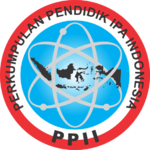Analisis Keterampilan Pengambilan Keputusan Siswa Kelas XI SMAN 1 Cihaurbeuti
Abstract
This research seeks to (1) obtain an overview concerning the biology learning process, (2) obtain an overview concerning the decision-making skill level of student. This research implemented qualitative method. The research subject consisted of 11th grade student of SMAN 1 Cihaurbeuti. The sample of the research was selected through snowball sampling. The data collection technique used was non-participant. The research instrument used in the study is a decision-making skill instrument. The research results revealed that decision-making skill of students are still at the low criteria.
Downloads
References
Alhamuddin. (2014). Sejarah Kurikulum di Indonesia. Nur El-Islam, 1, 48–58.
Arikunto, S. (2013). Prosedur Penelitian, Suatu Pendekatan Praktik. Rineka Cipta.
Badarudin, B. (2017). Peningkatan Keterampilan Pengambilan Keputusan dan Penguasaan Konsep IPA Melalui Model Pembelajaran Advance Organizer Di Sekolah Dasar. Jurnal Ilmiah Pendidikan Dasar UNISSULA, 4(1), 8–20. https://doi.org/10.30659/pendas.4.1.8-20
Baquedano, M., Elawar, M., & Lizárraga, M. (2007). Factors that affect decision making: Gender and age differences. International Journal of Psychology and Psychological Therapy, 7, 381–391.
Buckingham, D. (2007). Media education goes digital: An introduction. Learning, Media and Technology, 32(2), 111–119. https://doi.org/10.1080/17439880701343006
Gutierez, S. B. (2015). Integrating socio-scientific issues to enhance the bioethical decision-making skills of high school students. International Education Studies, 8(1), 142–151. https://doi.org/10.5539/ies.v8n1p142
Hartono, E. (2021). Peningkatan Hasil Belajar Ekologis Tentang Pencemaran Lingkungan Melalui Pembelajaran Berbasis Masalah Bagi Siswa Kelas X Mipa 2 Sma Negeri 1 Bulu Pada Semester 2 Tahun Pelajaran. 5(1), 149–158.
Murti, D. P., & Winoto, Y. (2018). Hubungan Antara Kemampuan Literasi Informasi Dengan Prestasi Belajar Siswa SMAN 1 Cibinong Kabupaten Bogor. BIBLIOTIKA : Jurnal Kajian Perpustakaan Dan Informasi, 2(1), 1–5. https://doi.org/10.17977/um008v2i12018p001
Santrock, J. W. (2011). Educational Psychology (5th ed.). McGraw Hill.
Seonarko, I. G. K., Andayani, Y., & Junaidi, E. (2018). Decision-making skill and students’ chemistry learning outcomes in sma/ma negeri mataram based on the application of the learning method. Jurnal Pijar MIPA, 13(2), 86–89.
Sugiyono. (2017). Metode Penelitian Kualitatif,Kuantitaif, dan R&D. Alfabeta.
Tawil, M., & Liliasari. (2013). Berpikir Kompleks. Badan Penerbit Universitas Makasar.
Viktoria, N. (2019). Respon Siswa Terhadap Media Pembelajaran Interaktif Berbasis Flash Pada Materi Sel Kelas Xi di SMAN 1 Sandai Kabupaten Ketapang. Jurnal Universitas Muhamadiyah Pontianak, 8(5), 81.
Zubaidah, S. (2018). Science, Technology, Engineering, and Mathematics. The SAGE Encyclopedia of Lifespan Human Development, September, 1–18.https://doi.org/10.4135/9781506307633.n706
Authors who publish with ISEJ: Indonesian Science Education Journal agree to the following terms:
- Authors retain copyright and grant the ISEJ: Indonesian Science Education Journal right of first publication with the work simultaneously licensed under Creative Commons Attribution License (CC BY 4.0) that allows others to share the work with an acknowledgment of the work's authorship and initial publication in this journal.
- Authors can enter into separate, additional contractual arrangements for the non-exclusive distribution of the published version of the work (e.g., post it to an institutional repository or edit it in a book), with an acknowledgment of its initial publication in this journal.
- Authors are permitted and encouraged to post their work online (e.g., in institutional repositories or on their website) before and during the submission process, as it can lead to productive exchanges, as well as earlier and greater citation of published work.












